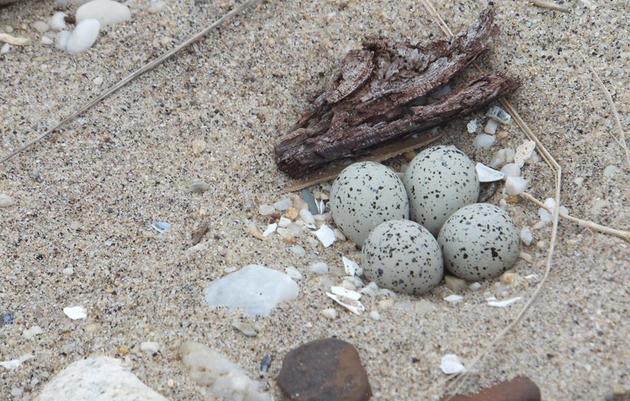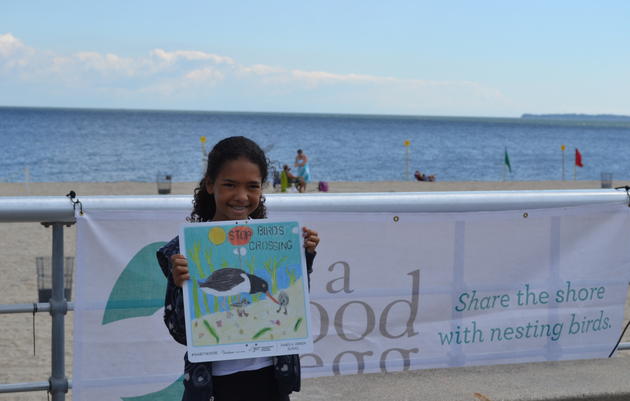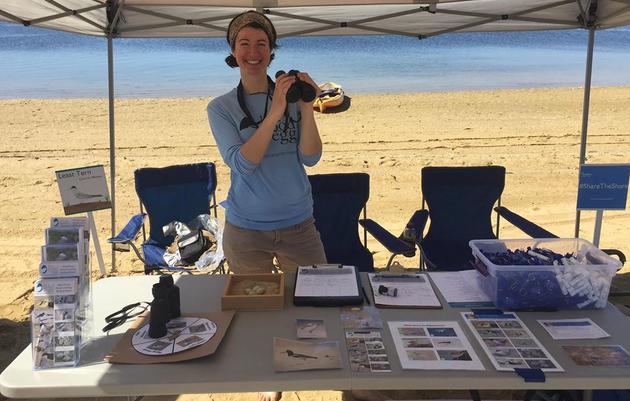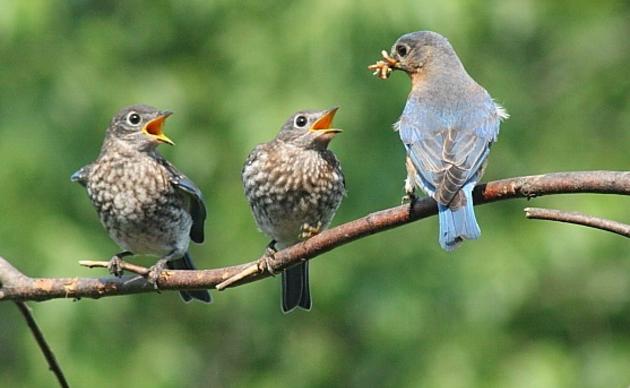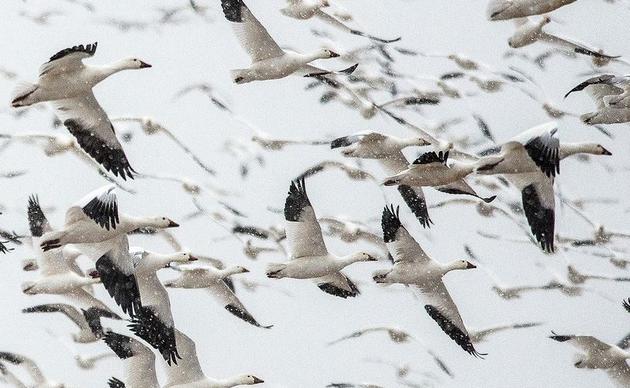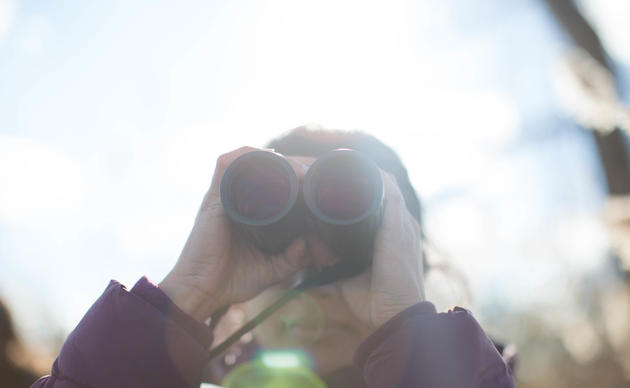In a room packed with eager art camp students at the Gallery North on Long Island, we gave a short presentation about shorebirds followed by a challenging question: “Why is it important to keep dogs off of nesting beaches?” One student raised her hand, paused, and before she had the chance to compose her response, another student jumped in and shouted, “because they might abandon their nest, DUH!”
This response took us completely by surprise. We have found that most adults do not immediately know the answer to that question! Clearly equipped with a new knowledge of shorebird biology and conservation challenges, the kids were ready to put their crayons to work. Their goal was to create eye-catching signs that inspire beach goers to “share the shore” with beach-nesting birds. The results were “shore” to impress.
“We” are the dynamic duo Arielle Santos, Coastal Stewardship Technician, and Jackie Bitetto, Outreach Technician – both positions offered through Audubon’s Women in Conservation Internship program – and it is our job this summer to inspire the next generation of beach stewards. Although as we quickly found out, it’s more likely that they are inspiring us.
Here are some creative ways the next generation is helping Audubon tackle issues related to bird conservation on our coast.
“You don’t step on my home, I don’t step on yours”
We believe that outreach should always be inclusive, and that through creative strategies, our bird conservation message can resonate with individuals of all ages.
For the past five years, Audubon has featured kid-created signs at nesting sites across many Long Island beaches. These colorful creations are posted alongside the typical “No Trespassing” signage encircling nesting areas.
Our hope is that children’s respect for wildlife is an inspiration for others to respect the places these birds call home during the summer months. These signs say things like, “Dogs scare my babies!”, and “Please don’t step on me!” Children have a funny way of addressing complicated worldly situations with simple yet elegant solutions like, “You don’t step on my home, I don’t step on yours.”
“Be a Good Egg” events and activities
Through our “Be a Good Egg” program we engage visitors at the beach itself, and teach them simple measures they can take to protect nesting birds and their chicks. This summer, we were inspired to utilize the winning combination of creativity and stewardship by creating conservation-themed activity sheets for our Be a Good Egg events. On one of our sheets, young stewards have the opportunity to ensure the Piping Plover successfully reaches the shoreline to feed through a maze of common disturbances. For example, the plover must dodge a person walking their dog, or a crow eating leftover beach pizza. Through their creativity, young beach stewards have shown that they can both acknowledge and share the challenges beach-nesting birds face.
For the first time in Long Island Be a Good Egg history, we engaged our youngest-ever beach-nesting bird outreach volunteers. It was our pleasure to host an outreach event alongside Bellmore Girl Scout Troop 909 at Jones Beach State Park. As part of their Silver Award, this driven group of young ladies created boards with flashy, Q&A style Piping Plover Trivia which caught the eyes of beachgoers from total shorebird-novices all to State Park Piping Plover Technicians. Examples of clever creativity like this shine most when attempting to reach a large and diverse audience.
Beach bucket b-i-n-g-o
A showcase of our next generation would not be complete without introducing you to the Beach Bucket Brigade. The teenage twin sisters Cayla and Iris, alongside their incredibly supportive mother, Raina, spearheaded this environmental initiative to clean our Long Island beaches. Their logo is unmistakable, with a hand-drawn picture of a plover sitting atop a bucket, inviting volunteers to pick up a bucket themselves for cleaner, safer shores for people and plovers alike.
During clean-up events, volunteers are equipped with a Beach Bingo Card to record common types of litter people may find on the beach. This data collection playfully disguised as a bingo card keeps track of pollution on the beach while keeping volunteers of all ages engaged and enthusiastic. Innovative strategies like Beach Bingo are what we are all about: fun, creative methods to make arduous activities like beach-cleaning a more interactive learning experience for everyone involved. These activities may seem unimportant and unenjoyable to the untrained eye; however, cleaning alongside passionate environmentalists, tallying tooth flossers and cigarette butts, and racing to hit bingo, you quickly realize the impact of your work.
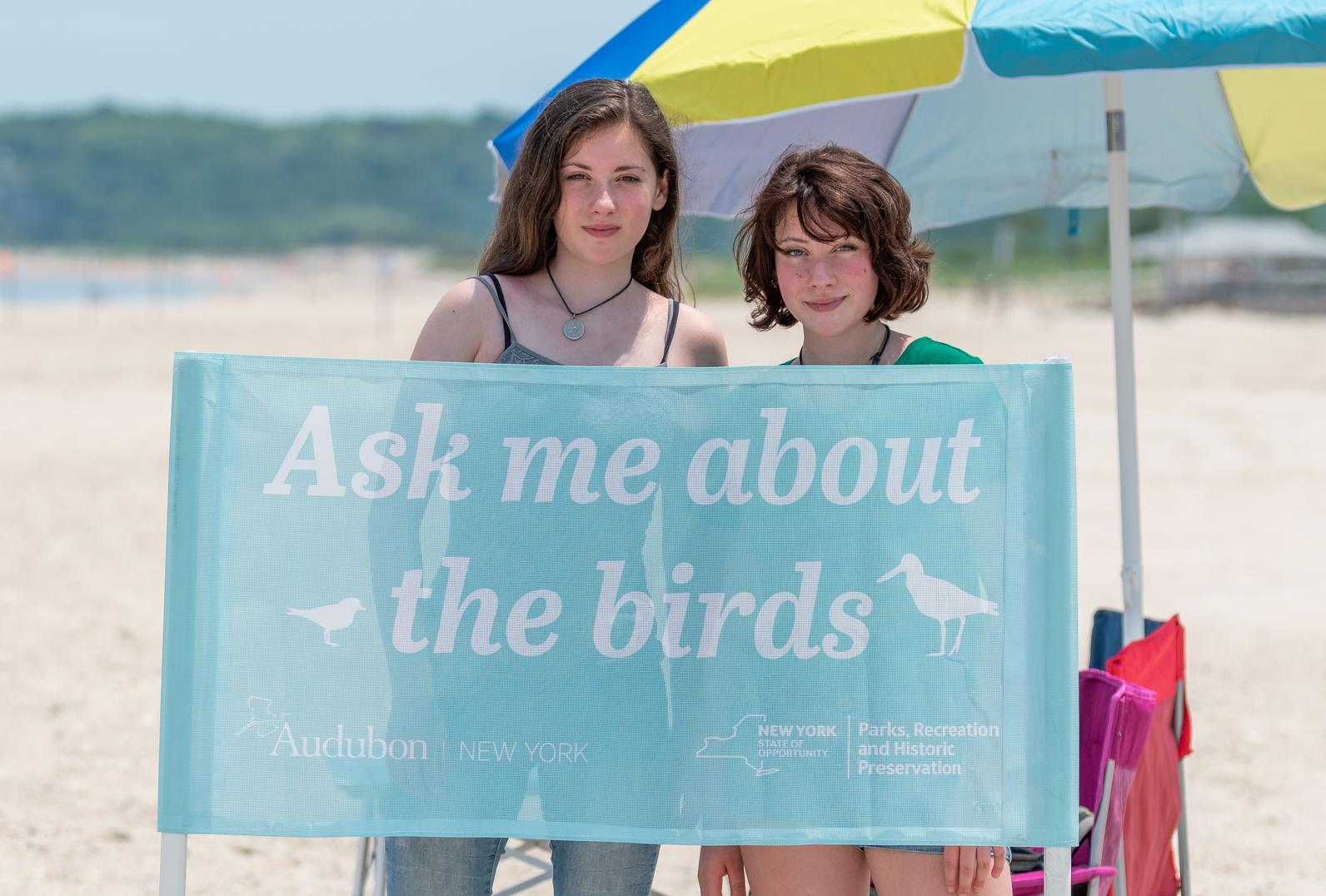
With the many endangered and threatened beach-nesting bird species that nest on Long Island, it is of ever-growing importance that we learn how to share the shore to ensure their success. Through impactful, creative outreach efforts we are successfully inspiring the next generation of beach stewards. Whether it is an action as simple as drawing a picture, or as hands-on as taking part in a beach clean-up, we have witnessed just how well-equipped the next generation is to tackle bird conservation challenges. It is comforting to know that the future of environmental stewardship is in their hands.

